The Garden-to-Table Project takes students on a months-long creative, immersive and interactive journey. They plant, harvest and prepare their own and other locally sourced food. They create pottery vessels and plates for serving and eating this food at a banquet they host for 100 people in Cal Lutheran’s Sustainable Edible Education (SEEd) Garden.
Created three years ago by ceramics instructor Janet Neuwalder, MFA, the annual interdisciplinary project builds community among classes and volunteers from different majors, SEEd Garden student staff, poets and local farmers. Neuwalder serves as a conductor, orchestrating the student-led project and encouraging each person to discover their role. “I wanted to create an experience that generates meaning and common ground in our diverse world, that offers a sense of fulfillment from beginning to end.”
Neuwalder’s goal is to put into action the fluid interconnection of forming clay and planting, growing, harvesting and preparing food. The result is an experience for community building centered on pottery, locally sourced, communally prepared food, and the sharing of a bountiful meal in a beautiful setting.
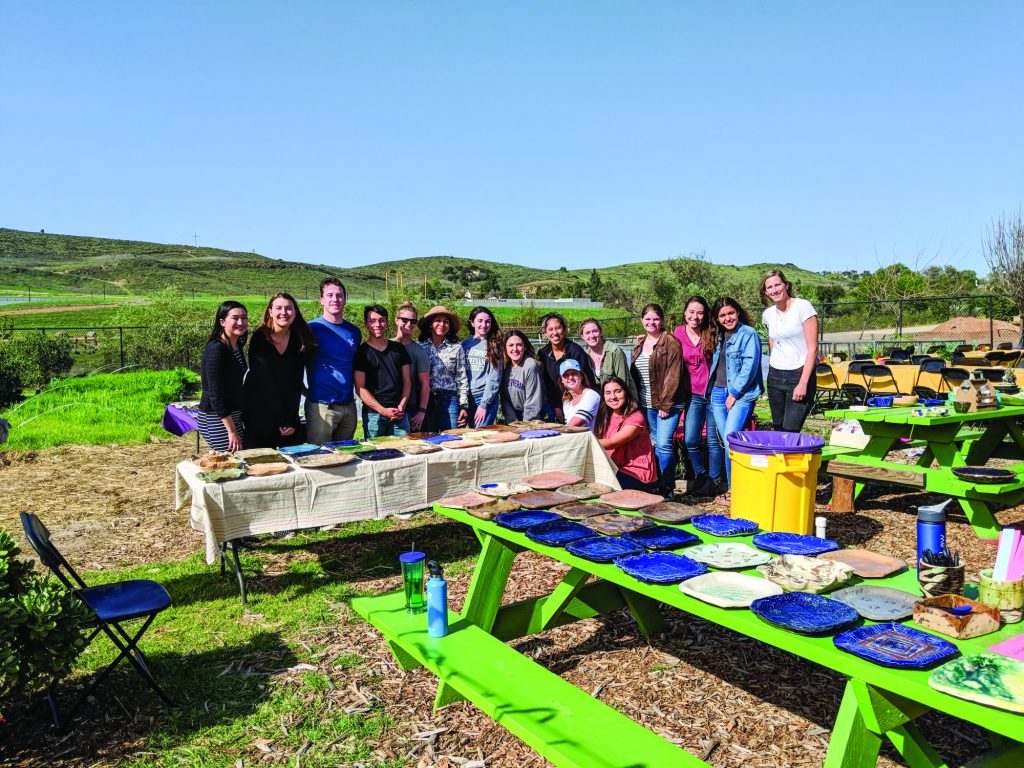
Ceramics students set plates created by students and community members 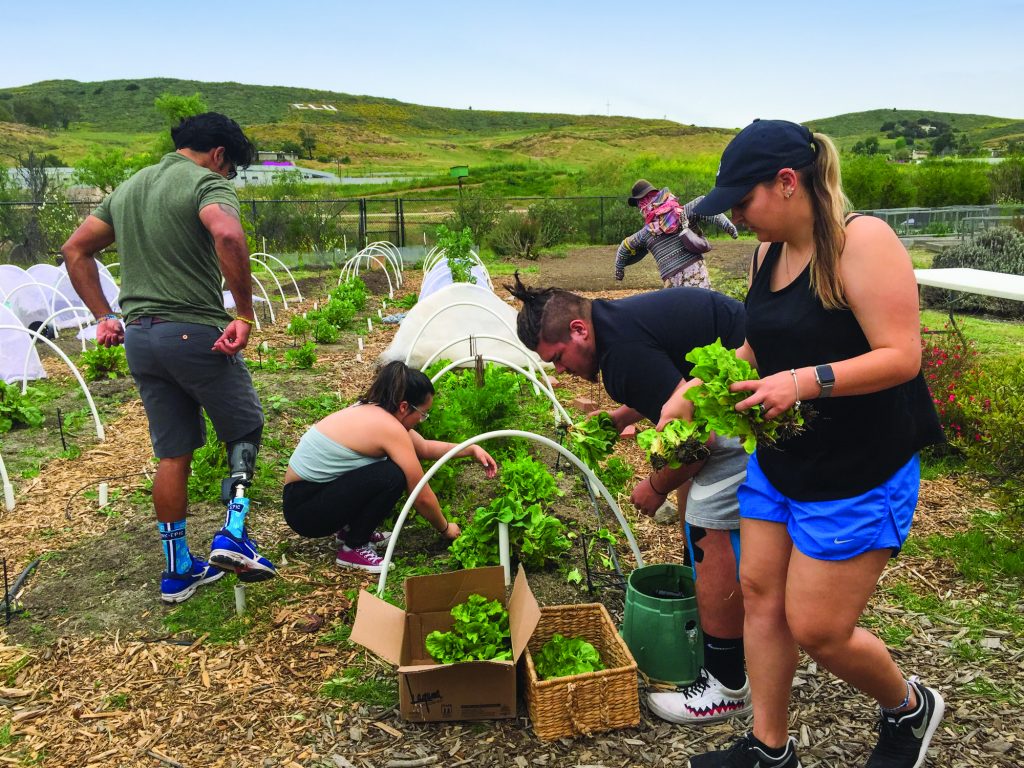
Ceramics 1 class members tend to the garden 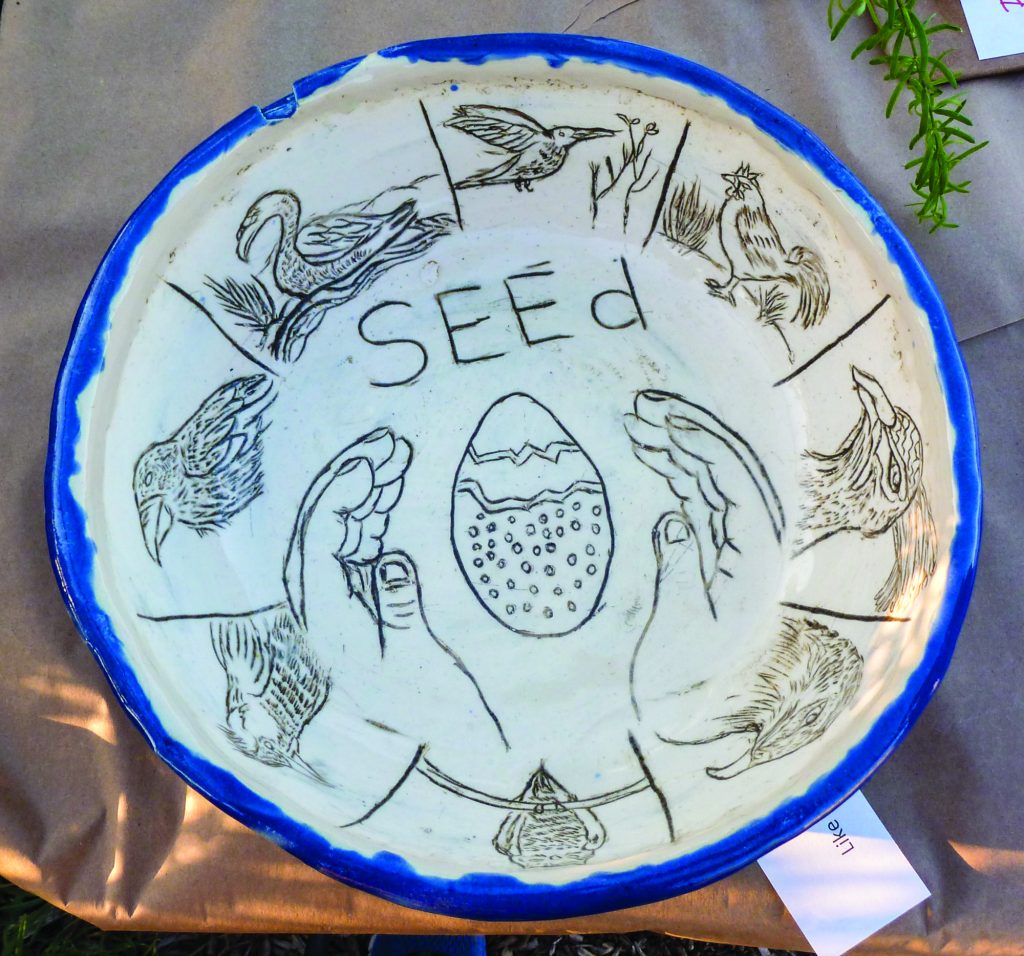
A banquet serving bowl collaboratively created by two students 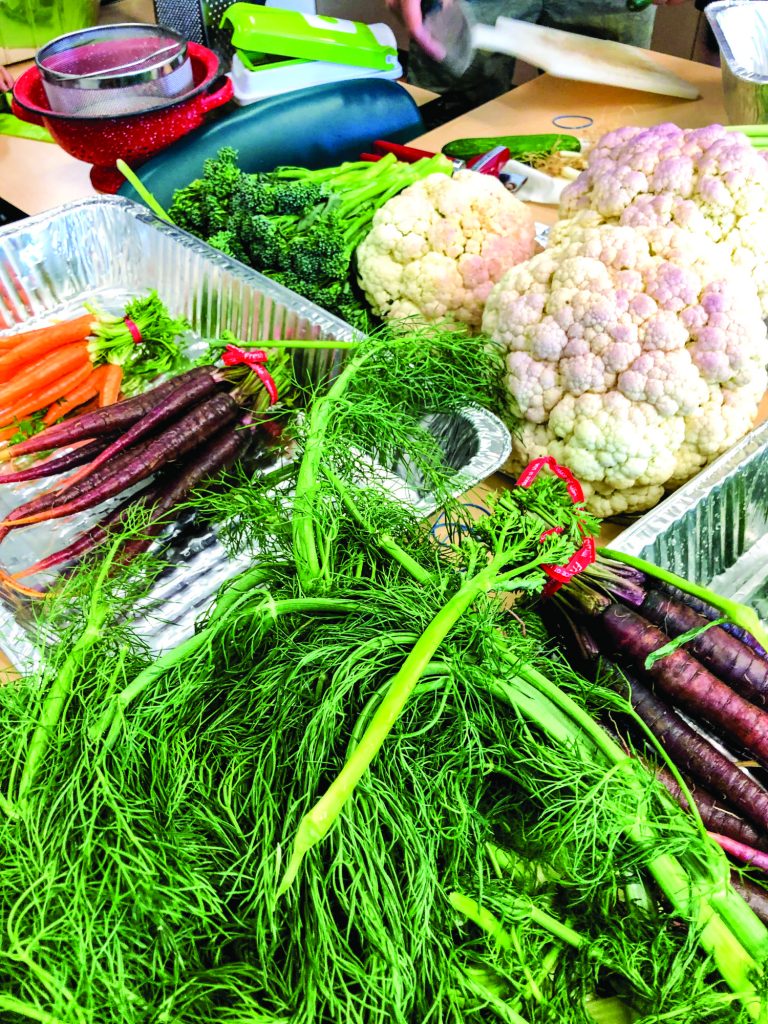
Produce sourced from the Thousand Oaks and Ventura farmer’s markets 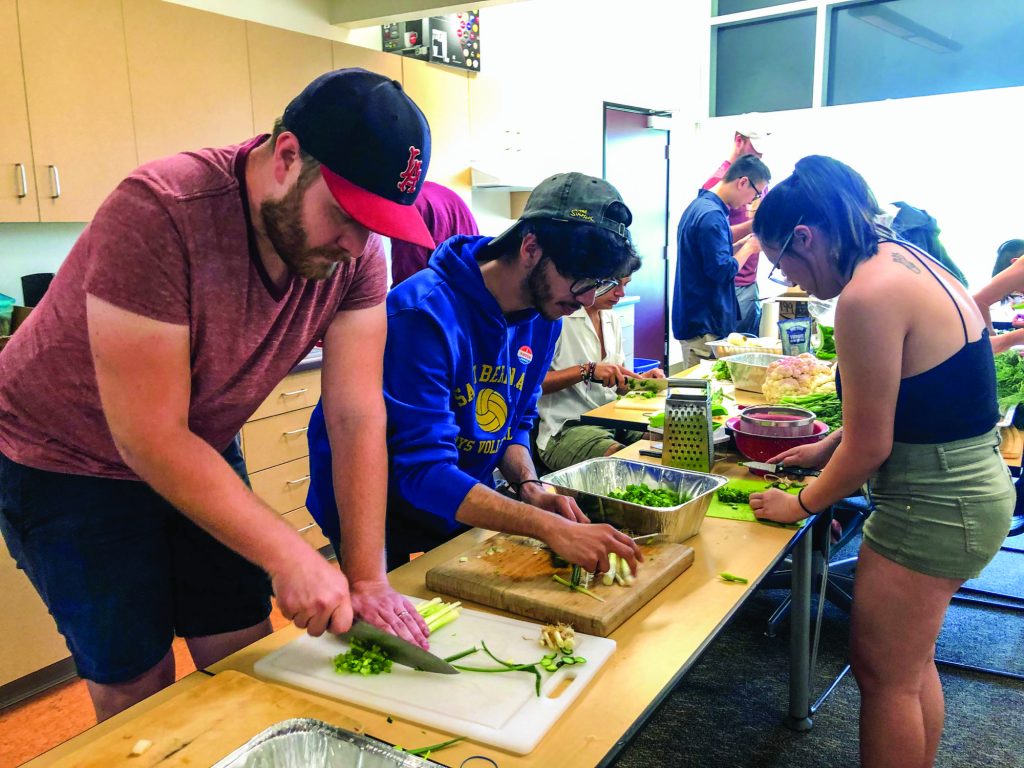
Students from various clubs prepare the banquet in the Trinity Residence Hall kitchen.
CREATING WORTH AND MEANING
Everything at the banquet is handmade, with mindful effort and the shared desire to produce something meaningful and real. Neuwalder wanted each student to realize how gratifying it feels to use a vessel filled with something delicious, all made from the simplest materials, with one’s own hands.
“Clay is a living material and has such human qualities,” she said. “When we talk about pottery vessels, we talk about the foot, the shoulder, the belly, the lip. Working with clay, students become more empathic. They develop a sense of care because they have to carry their vessel from a clumsy lump of clay into something that’s of use, which has worth and meaning. That’s what pottery is.”
BUILDING COMMUNITY
Last year, Asia Moore ’20 went all-in. She was the student liaison among the Green Club, ceramics classes, Student Life, SEEd Garden, farmers, markets and the community. She worked with Neuwalder to plan and run the event, led the plate-making ceramics workshops and created a menu that focused on using farmers’ market in-season produce. She planned the food grown in the SEEd garden and cooked it alongside volunteers from various clubs. She also budgeted and ran the event day with the help of SEEd staff and ceramics students.
“Last year’s highlight was the community we created,” said Moore, a biology major. “We got to know not only Cal Lutheran students but also local farmers, like Apricot Lane and Abundant Table, who donated food, and the people we educated about sustainability practices. I also really loved the creativity that came from all the collaborative pieces.”
INTERACTIVE, INTERDISCIPLINARY CLASSES & WORKSHOPS
During workshops with local poets, students wrote poetry, which served as inspiration for their pottery surfaces. Seven classes took part in the preparation for the spring 2020 event—ultimately cancelled due to the Coronavirus epidemic—and eight classes will participate in spring 2021: four ceramics, two religion, one journalism and one art history.
- Three ceramics classes taught by Neuwalder and one taught by Carlos Kessler, MFA, will again explore the relationship between pottery, food and meaning.
- Jennifer Vanderpool’s, PhD, Ancient Art students will continue hands-on experiences in plate-making and glazing workshops to complement their study of ancient practices of working with clay.
- Kristin Ritzau, PhD, will again teach her Food and Religion class in an outdoor classroom.
- Students in Victoria Clayton’s, MA, journalism class, Writing for Mass Media, interviewed ceramics students as they worked on their vessel projects and their writing will accompany photos at the spring 2021 banquet.
- Lisa Dahill’s, PhD, Spirituality and Art class will participate in spring 2021 plate making and glazing workshops, forming clay in a metaphoric way, to add dimension to learning about human imperfection and potential.
In the 2020-21 academic year, the banquet will be held in April and will also be re-configured as an art exhibition during the Festival of Scholars, featuring student pottery, photos and a video documenting the entire banquet process.